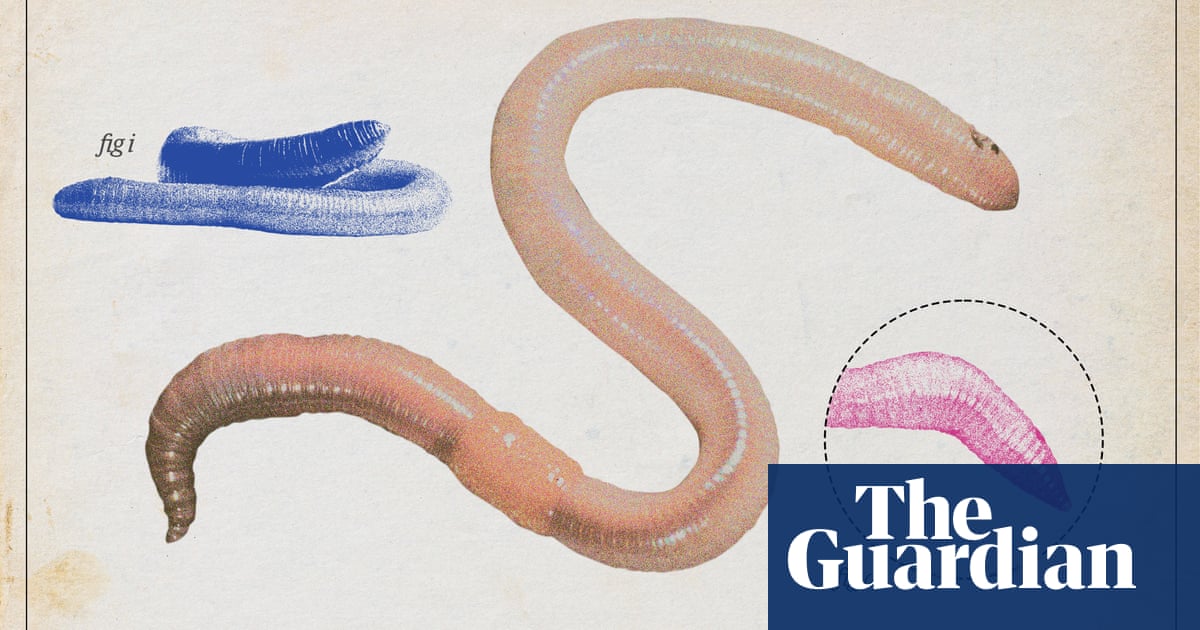The people have spoken and the choice of Guardian readers for the final nominee for UK invertebrate of the year is resounding: all hail Lumbricus terrestris, the common earthworm.
The common earthworm – also known as the lob worm, dew worm, nightcrawler and, in Germany, the rain worm – is the soil-maker. Without its labours, we would struggle to feed ourselves.
Worms can bring 40 tonnes of soil to the surface per hectare a year in Britain. They are the engineers of an ecosystem that may be as diverse as the Amazon rainforest. Their diggings aerate soil and they pull fallen leaves and other organic matter into the earth and recycle them. Worms make soils less prone to flooding in winter and less baking hard in summer, they boost microbial activity and, of course, support plant growth.



This is the best summary I could come up with:
The people have spoken and the choice of Guardian readers for the final nominee for UK invertebrate of the year is resounding: all hail Lumbricus terrestris, the common earthworm.
Worms make soils less prone to flooding in winter and less baking hard in summer, they boost microbial activity and, of course, support plant growth.
These are gorgeous creatures, many shades of pink, stretching out to 35cm long, and coiling and gliding – never “slithering”, as the pestilent centipede put it in James and the Giant Peach – through the earth.
Lily, aged four, nominates the earthworm “because they help make compost to help our garden grow, they feel very soft and when they have got mud on them they are like a wiggly piece of string”.
Today, Guardian-reading soil scientists and horticulturalists make a powerful case to Vote Worm but so, too, does Gill from North Wales, who has been earthworm-phobic since she was Lily’s age.
“Much gratitude for all the thrashing ones, the little thready ones, the slimy ones, the knotted ones, the ones with ‘saddles’, the blue-tinged ones, even the enormous ones stretching terrifyingly across my drive when the ground is sodden,” she writes.
The original article contains 426 words, the summary contains 196 words. Saved 54%. I’m a bot and I’m open source!